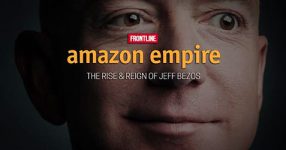The documentary “Guardians of the New World” delves into the intricate world of hackers and the evolving landscape of internet privacy. As the narrator introduces the audience to the daily interactions with the digital realm, it prompts contemplation on the true nature of online freedom.
Hacker Culture and Evolution
The documentary challenges conventional stereotypes by exploring the broader perspectives of hackers. Beyond the image of individuals breaking into systems for fun or fame, it highlights their awareness of political and economic implications in cyberspace. The term “hacker” extends beyond its dictionary definition, and the documentary suggests that these individuals may hold the keys to preserving online freedom.
The Roots and Values of Hacker Spaces
To comprehend hacker culture fully, the documentary takes a closer look at hacker spaces like “The Loop” in Paris. It introduces Okhin, described as a crypto-terrorist and a member of Telecomix, showcasing the autonomy, freedom, and sharing values that echo through hacker spaces worldwide. These values trace back to the ’60s and ’70s in the United States, forming the foundation of the hacker spirit.
Declaration of Independence of the Cyberspace
The narrative unfolds by recounting the clash between the humanistic utopia of cyberspace in its early days and the subsequent threats imposed by the growing computer industry. The documentary references the Declaration of Independence of the Cyberspace written by John Perry Barlow, which stands as a historical document for hackers defending a free internet against political and legal control.
The Role of Free and Open Source Software
As the internet’s use proliferates, hackers respond by developing free and open-source software. The documentary explains the concept of free software using a metaphor of a vanilla cake recipe, emphasizing fundamental freedoms. It introduces Richard Stallman, considered the founding father of the free software movement, and highlights the importance of preserving a free internet through free tools.
Hacker Meetings and Knowledge Sharing
The documentary transports viewers to hacker meetings like OHM 2013, providing a glimpse into the global collaboration of hackers who share knowledge, experiences, and inventions. Figures like Mitch Altman and Emmanuel illustrate the diverse expertise within hacker communities, ranging from electronics to 3D printing, as they contribute to shaping a better and fairer world.
Hackers and Human Rights Activism
The narrative then explores the intersection of hackers and human rights activists. It draws connections between anti-globalization movements and the potential of the internet as a communication tool. The Arab world revolutions become a common ground for collaboration, with hackers and hacktivists supporting human rights causes, exemplified by the activism of Maryam Al Khawaja from Bahrain.
Whistleblowing and Cyber-Surveillance
The documentary discusses whistleblowing as an act of courage in exposing illicit activities. It delves into the consequences of mass cyber-surveillance technology, presenting projects within hacker communities aimed at protecting digital data. The revelations of Edward Snowden and the impact on global privacy underscore the urgency for defending online freedoms against the encroaching surveillance state.
Challenges to Online Privacy and Activist Initiatives
Addressing contemporary challenges, the documentary explores organizations like La Quadrature du Net, founded by hackers, advocating for online privacy against corporate interests. Figures like Frederic Bardeau highlight initiatives combining social entrepreneurship and IT training to empower individuals in navigating the evolving digital landscape.
Conclusion and the Future of Hacker Culture
As the documentary concludes, it contemplates the evolving perception of hackers in popular culture. It poses questions about the commodification of counterculture and the potential future challenges as technology progresses. The closing remarks emphasize the role of hackers as guardians of ever-changing worlds and the importance of supporting those who speak up for public interest and reforms.












